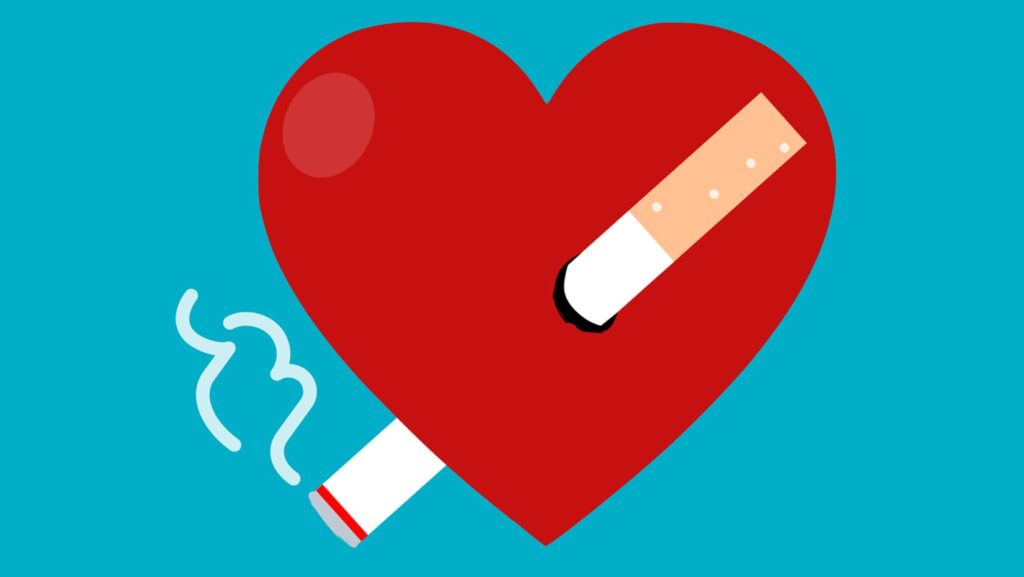Smoking is a well-known health hazard with a broad array of detrimental effects on the human body. Despite widespread awareness of its risks, smoking remains a prevalent habit globally. This article explores the various ways smoking impacts health, ranging from respiratory problems to cardiovascular issues, and highlights the importance of quitting for a healthier life.
Respiratory Health
One of the most significant effects of smoking is on respiratory health. Cigarette smoke contains over 7,000 chemicals, many of which are toxic and can cause severe damage to the lungs. When inhaled, these substances irritate the respiratory tract, leading to chronic conditions such as chronic bronchitis and emphysema. Chronic bronchitis is characterized by persistent cough and mucus production, while emphysema involves the destruction of alveoli, the tiny air sacs in the lungs that are essential for gas exchange.
Additionally, smoking is a leading cause of lung cancer, one of the deadliest forms of cancer. The carcinogens in tobacco smoke damage the DNA in lung cells, leading to uncontrolled cell growth and tumor formation. Studies show that smokers are 15 to 30 times more likely to develop lung cancer compared to non-smokers.
Cardiovascular Health
Smoking also has a profound impact on cardiovascular health. The chemicals in cigarettes cause inflammation and damage to blood vessels, leading to atherosclerosis—a condition where fatty deposits build up in the arteries. This buildup narrows the arteries and restricts blood flow, increasing the risk of heart attack and stroke.
Furthermore, smoking raises blood pressure and reduces the efficiency of the heart. Nicotine, a primary component of tobacco, constricts blood vessels and increases heart rate, putting additional strain on the cardiovascular system. Over time, this strain can lead to coronary artery disease, heart failure, and other serious heart conditions.
Immune System and Overall Health
The immune system is not spared from the harmful effects of smoking. Tobacco smoke weakens the immune system, making the body less effective at fighting off infections and diseases. Smokers are more susceptible to respiratory infections, such as pneumonia and influenza, and may experience slower recovery times compared to non-smokers.
Moreover, smoking contributes to overall poor health by affecting the body’s ability to absorb essential nutrients. For instance, smoking reduces the absorption of vitamin C, a critical antioxidant that supports immune function and skin health. This deficiency can lead to additional health complications, including a higher risk of infections and delayed wound healing.
Reproductive Health
Smoking also has adverse effects on reproductive health. In women, smoking can lead to reduced fertility by affecting hormone levels and damaging the fallopian tubes. Pregnant women who smoke are at higher risk of complications such as preterm birth, low birth weight, and stillbirth. Additionally, smoking during pregnancy can harm the developing fetus and increase the likelihood of congenital abnormalities.

In men, smoking can negatively impact sperm quality, reducing sperm count and motility. This can lead to difficulties in conceiving and an increased risk of infertility.
Mental Health
Smoking also affects mental health, often in ways that are less discussed but equally significant. Nicotine addiction can lead to mood swings, anxiety, and depression. Many smokers believe that smoking helps manage stress, but in reality, the dependence on nicotine can exacerbate mental health issues. Nicotine affects neurotransmitter systems in the brain, which can disrupt mood regulation and increase feelings of anxiety and depression. Studies have shown that individuals with a smoking habit are more likely to experience mental health disorders compared to non-smokers. Additionally, the cycle of addiction and withdrawal can create a perpetual state of stress, making it harder for smokers to manage their emotional well-being effectively.
Economic Costs
Beyond the direct health impacts, smoking imposes significant economic costs on both individuals and society. Smokers often face higher medical expenses due to smoking-related illnesses, including frequent doctor visits, prescriptions, and hospitalizations.

These costs can add up over time, placing a financial burden on both individuals and healthcare systems. In addition to medical costs, smokers may experience a decrease in productivity due to health problems and absenteeism. The economic impact of smoking extends to increased insurance premiums and higher rates of disability. By quitting smoking, individuals can not only improve their health but also reduce these economic burdens and potentially achieve significant financial savings.
Exploring Alternatives
For those looking to quit smoking, exploring alternatives such as disposable vapes can be an option. Disposable vapes have become popular among those who want to reduce their smoking habit or transition away from cigarettes. Many find that using these devices, along with disposable vape deals that make them more affordable, can assist in managing cravings and reducing the overall consumption of nicotine. It would be best to approach these alternatives as part of a broader quit plan, ideally with the guidance of a healthcare provider.
Conclusion
The impact of smoking on health is extensive and multifaceted. From respiratory and cardiovascular issues to weakened immune function and reproductive health problems, smoking poses serious risks to overall well-being. Quitting smoking is one of the most effective ways to improve health and reduce the risk of developing smoking-related diseases. For those struggling to quit, seeking support through cessation programs and resources can make a significant difference in achieving a smoke-free life.
